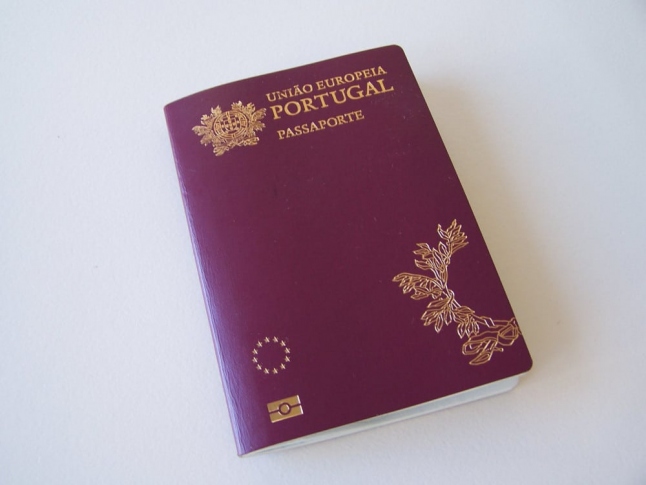
It is quite common nowadays to hear Goans talking about acquiring a Portuguese passport. Perhaps it is difficult to think of a more despicable expression for Portugal, and I have little doubt that members of our Goan diaspora use that expression out of carelessness or ignorance of the true meaning of citizenship and nationality. The concept of citizenship largely transcends the meaning of a passport. Passport is a travel document and has a relatively short validity. Citizenship defines a fundamental right linked to the nationality of a sovereign state -- it has no validity. Citizenship is understood as a statute defined by a national constitution which confers a series of rights and duties to the citizen, normally granted by a strong bond or connection to a country.
To better understand the concept of citizenship, it can be said, for example, that a citizen exercises citizenship through the right to vote and through compliance with national laws. But of course this is a much broader concept. Nationality has to do with the feeling of belonging to a country. Nationality is normally proven by place of birth (jus solis) or by blood relationship (jus sanguinis), according to the nationality laws of each country. Nationality has no expiry date, although it can be revoked by the State or renounced by the citizen, as long as there is another nationality. The correct expression to use is acquisition of Portuguese nationality and the respective citizenship in terms of civic rights and responsibilities.
Later, by order of King José I, the Prime Minister Marquês de Pombal promulgated by Royal Decree the Charter of 2/4/1761, granting Christians from the Portuguese State of India, the same honours, standing, rights, and privileges enjoyed by the natives of the metropolis
There were several revisions of the Portuguese Nationality Law but it was only with the new Constitution of 1911 that the law changed to grant Portuguese nationality by virtue of birth in a Portuguese territory (jus solis). With regards to the nationality of the natives of the Portuguese State of India, the most relevant law comes from the Portuguese Civil Code of 1867 and law number 2098, of 29/07/1959, with content generally based on the criterion of jus solis. As is well known, the conquest of Goa by the Portuguese is dated of 25/11/1510 and, therefore, Goa was Portuguese territory from that date until 19/12/1961 when the Indian troops ended the 451 years of Portuguese sovereignty. Portugal and the United Nations did not recognise the change in sovereignty and continued to regard the Portuguese State of India as a territory under de facto Portuguese administration. On 17/02/1962, Portugal passed law 2112, which, through its Base I, guaranteed the continuation of the provincial government of the Portuguese State of India operating in Lisbon. And, Base V of the same law, also guaranteed the continuation of the applicability of the Portuguese Nationality Law without any change to the natives of the Portuguese State of India.
Following the democratic revolution of 25/04/1974, the Portuguese government decided on 31/12/1974 to sign a peace treaty with the Republic of India, thus recognising Indian sovereignty over the Portuguese territory of the State of India with effect from the dates recognised by the respective revisions (tenth and twelfth) of the Indian Constitution. It is important to note that Law 2112 was not revoked, and, therefore, the natives of the Portuguese State of India effectively retained their Portuguese nationality of origin.
In 1962, through the Goa, Daman and Diu (Citizenship) Act, the Republic of India imposed Indian nationality on the natives of the former Portuguese State of India domiciled there. At that time, Portugal did not allow dual nationality and any Portuguese citizen who voluntarily acquired the nationality of another country would lose Portuguese nationality. However, the fact that Indian nationality was imposed implied that the same was not acquired voluntarily, and, in that sense, the natives of the former Portuguese State of India did not lose their Portuguese nationality of origin.
It is concluded, therefore, that those born in the Former Portuguese State of India are still Portuguese citizens of origin, in accordance with the Portuguese Nationality Law 2098 of 29/07/1959.
By blood relationship (jus sanginis), the direct descendants of these citizens are entitled to acquire Portuguese nationality through general Portuguese Nationality Law 37/81 of 10/03/1981, article 1, regardless of place of birth. Once Portuguese nationals, they can pass on their Portuguese nationality to their direct descendants, continuing to pass nationality from generation to generation ad eaternum.
According to news released through the Portuguese daily Diário de Notícias of 06/02/2014, citing sources from the Institute of Registry and Notary Services (IRN), there were 27,382 acquisitions of nationality from the Republic of India between 2007 and 2013, with a noted increase from 2009. In 2012 there were 3,713 and in 2013 this number increased to 3,771. Another article in RTP News, dated 8/16/2016, citing the same IRN sources, pointed to around 5,600 in 2015, which gave an average of 21 new Portuguese citizens a day. A lot of false documents were identified, which ended up causing a lot of delays and complications for the completion of the many pending cases, so it is thought that the average is today well below 20 cases per day. Birth transcription processes for those born before 1961 in the former Portuguese State of India used to complete in 3 months and now take more than 4 years. Nationality acquisition processes for those born after 1961 used to complete in 4 months and now take more than 15 months and documents are often sent back to the Portuguese Consulate in Goa for verification, which causes further delays.
The author, originally from Dramapur Goa, holds a computer Science
Engineering degree
from IS Tecnico Lisbon.
